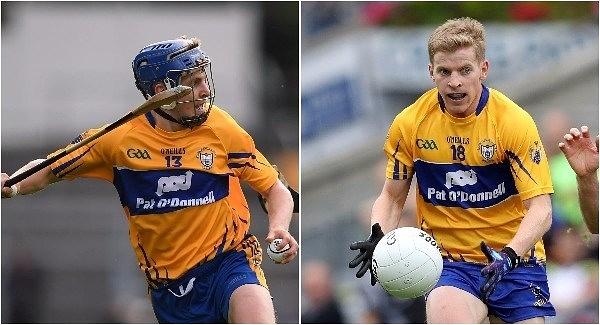Jimmy is only eight years old, but is already being heralded as the next Tony Kelly or Gary Brennan. Jimmy appears to have far superior catching and striking skills than any of his fellow teammates. He doesn’t display the “sheep” mentality of his peers, as Jimmy plays his position and doesn’t simply chase the ball around the GAA pitch. During games, Jimmy often fields the ball high in the air, sidesteps his opponents and rifles the ball into the back of the net. His coaches believe he has developed a natural instinct of the game at a very young age.
For many children, primary school offers them their first opportunity to participate in physical activity classes or structured sport programs, such as after-school football or hurling/camogie. Therefore the role of the teacher (PE classes) and the coach (after-school sport) are pivotal in the development of a child’s sporting experience. However, when coaches and teachers encounter a child such as Jimmy, they are often tasked with finding an appropriate method of fostering his/her athletic talent. Should Jimmy solely focus on one sport due to his obvious talent; or participate in a variety of sporting activities throughout his childhood? This dilemma is a simplified illustration of the “Sampling vs. Specialization” debate which has been ever present in youth sport.
EARLY SPORT SPECIALIZATION
“Early Sport Specialization” simply termed as “specialization” requires an individual to be engaged in their main sport from a young age. This process involves extensive hours of deliberate practice; which require high amounts of concentration with little or no play time afforded for other activities. This pathway has the primary goal of ascertaining expertise or an elite status. Specialization which may include year round sport specific training, participation on multiple teams of the same sport, or focused participation in a single sports team, is reported to have increased in frequency in preadolescent children. Despite a rise in global sports participation, physical fitness levels of children are declining which is facilitating obesity and physical inactivity. The specialization of youth sport underlies the effects of reduced opportunity for all children to participate in a variety of activities throughout the year. The loss of “fun focused” physical activity during childhood is likely to contribute towards deficits in current and long-term health.
THE CONSEQUENCES OF SPECIALIZATION
Individualised sports such as gymnastics and figure skating have reaped some success from specialization; however these early talent identification programmes have ignored the potential physiological and psychological costs encountered by children. Research has indicated that “Early Sport Specialization” may actually be detrimental to the development of a child. The pathway itself is a counter-productive cycle, which hinders motor skill development and predisposes the child to future injury.
The nature of specialization leads to success for so few, and physical inactivity for so many after they fail to “make the cut.” Injuries suffered during youth sport often deter individuals from being physically active in adulthood, which further promotes physical inactivity across the lifespan. Musculoskeletal injuries, caused by overuse, represent approximately 50% of the sustained injuries in youth sport – many of which fail to be recognised by children, leading to “Overtraining Syndrome” and high incidence of dropout. Detrimental changes in cognitive profile, antisocial behaviour, anxiety, and difficulty interacting with peers/parents are associated with this illness.
THE SAMPLING APPROACH
An alternative to “Early Sport Specialization” is “The Sampling Approach,” also referred to as “sport sampling.” This developmental pathway involves participation in numerous sports. It is characterized by “deliberate play” or “play practice,” which are activities that children find naturally enjoyable yet contribute towards skill development. These activities or games are often adapted versions of adult sports but are entirely “child centred.” Sport sampling recognises that children’s sporting experiences should ideally promote positive youth development and a healthy, active lifestyle. Sport sampling also enables children to develop Fundamental Movement Skills (FMS) which act as a foundation for future movement proficiency. These skills include agility, balance and co-ordination as well as running, jumping and throwing which are necessities for Gaelic games. In fact, research has linked FMS competence with physical activity maintenance thus highlighting their importance for a growing child.
BENEFITS OF SPORTS SAMPLING
Considering the alarming and escalating rates of childhood obesity, keeping children involved in physical activity is very important. This cannot be achieved through sport specialization due to its link with sporting attrition and dropout. Research has highlighted that sport sampling during childhood is associated with physical activity in adulthood. Therefore the primary benefit of sampling is that it promotes lifetime engagement in physical activity.
Only a small percentage of children who participate in sport ever become elite athletes, thus it is vital to consider the psychological outcomes of sport participation during childhood. It has been proposed that children who sample a variety of sporting activities are more likely to experience the following five developmental outcomes compared to those who specialize in one sport/activity.
Firstly, sport sampling has the potential to encourage the development of life skills such as time management (intrapersonal), and communication or leadership skills (interpersonal). Children that sample numerous sports have the opportunity to gain such skills in comparison with an early specializer.
Secondly, “The Sampling Approach” stimulates prosocial behaviour by exposing children to other children of similar age and interests, which helps to facilitate new friendships that may have life-lasting effects. This opportunity is significantly reduced for those who only play with one team.
Thirdly, sampling of sports assists children with healthy identity development, as they get the chance to explore and experiment with multiple roles on different teams. During this time, a child can decide the level/standard at which they wish to participate – engagement in one sport may limit such exploration.
Fourthly, children can connect with various peer groups through sport sampling. As children enter their teenage years, social acceptance becomes an integral part of their own self-worth; therefore it is possible for children to make friends on another team should they initially fail to do so. Sadly a child who specializes in one sport is not afforded a similar opportunity.
Finally, sampling of sports assists children in the development of social capital which includes greater relationships between peers, parents, coaches/teachers, older adults and other members of their local community. These interactions are limited for those involved in only one sport.
IMPLICATIONS FOR THE CHILD GAA PLAYER
Evidence would suggest that the developmental benefits of sport sampling far outweigh those associated with specialization. Coaches and teachers are advised to encourage their children to participate in a variety of sports/activities throughout their childhood. Specialization in one sport should be postponed to later in adolescence – and only if it is the absolute desire of that individual to dropout from all other sporting activity. As a reminder, children who play various sports are less likely to dropout and will also gain several psychological benefits. Furthermore it is recommended that primary school sports incorporate more deliberate play, as this fosters intrinsic (natural) motivation to maintain physical activity.
In response to our earlier dilemma: “Should Jimmy solely focus on one sport due to his obvious talent; or participate in a variety of sporting activities throughout his childhood?” – Jimmy’s coaches and teachers are best advised to continue encouraging him to play the sports that he enjoys, regardless of his competency in those sports.
It’s also worth noting that on occasion Jimmy may wish to skip a training session or match due to fatigue or lack of interest, and his parents are obliged to let him do so. If Jimmy would rather have a “puck-around” with his friends or neighbours at home; his development isn’t going to grind to a sudden halt. We often dismiss the importance of allowing a child to have fun when playing sport; this should never be compromised – just let Jimmy be Jimmy!







